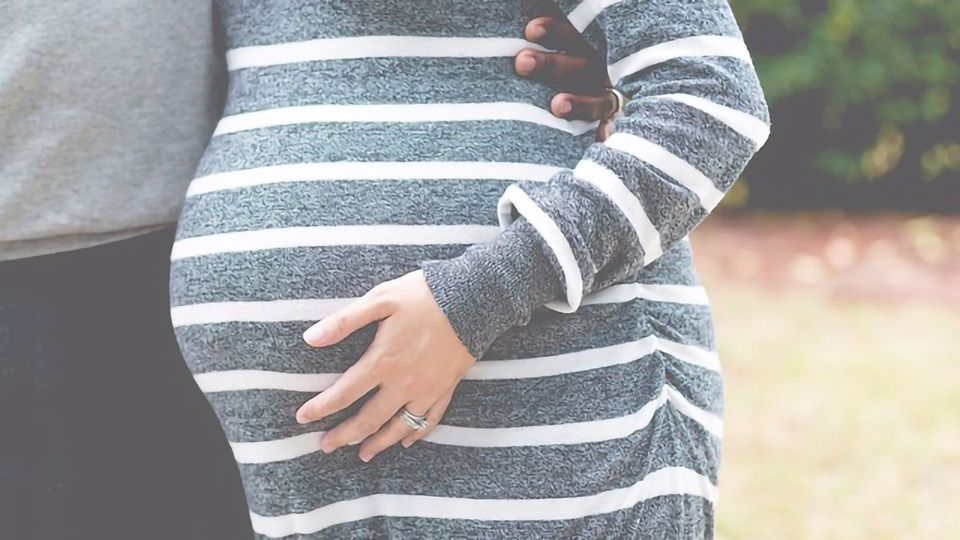Fetal Growth Inhibited by Mothers Exposure to Perfluorinated Substances

Complete the form below to unlock access to ALL audio articles.
They make many things in our everyday life easier: they keep children's feet dry in impregnated boots, they make the free balls to release the pan easily, and they make the carpet easier to clean.
But the environmental chemicals, the perfluorinated substances, have a wide range of harmful effects, the most recent of which is shown to be reduced growth in fetuses.
According to a new study, researchers from Aarhus University have investigated the cocktail effect of the chemicals, and the finding is both significant and alarming, says Professor Eva Cecilie Bonefeld-Jørgensen from the Department of Public Health.
"The perfluorinated substances can mimic the hormone estrogen, and therefore they can interfere with the body's natural hormones' work with, among other things, developing the fetus. We can see that the complex mixture of perfluorinated substances in the mother impedes the growth and length of the fetus, ”she says.
So far, researchers have only studied the individual's impact on fetuses, and here the results have not been entirely clear.
Eva Cecilie Bonefeld-Jørgensen and her research colleagues have developed a new method for extracting and isolating the content of the substances from the blood and subsequently determining the combined hormone-disrupting effect - which one popularly calls the cocktail effect - on fetal development.
“The math is not called 1 + 1 = 2, but 1 + 1 = 3 when it comes to the total effect. Low birth weight can lead to a number of diseases later in life, but we still lack concrete knowledge about how the children who were exposed to the substances develop, ”says Bonefeld-Jørgensen about the result published in the scientific journal Environmental Health Perspectives.
She is currently awaiting response to an application for funding for the necessary follow-up on children's development.
Maybe Danish ban on the road
The researchers have examined blood samples from 702 pregnant Danish women who have been registered with the database "Aarhus Børns Biobank". No thorough studies of the concentration of perfluorinated substances and their biological effect in pregnant women have previously been performed, but the study focuses on previous research in the field. The substances are also linked to, among other things, breast cancer, fertility problems, ADHD, risk of asthma, decreased immune system and reduced effect of vaccines.
The harmful environmental chemicals accumulate in the body and are highly degradable. They are fat and water resistant and are found in our food, in the air, in dust and water and a wide range of everyday products such as rainwear, food packaging, furniture textiles and make-up. Only a few of the nearly 1000 different perfluorinated substances are currently regulated by legislation, and there is no requirement for a declaration of goods.
“As a consumer you have to ask in the store. Products with the toxic substances are popular, but we pay the price with our children's and our own health if we do not control the products, ”says the researcher.
The area is EU-regulated, but Minister for the Environment and Food, Jakob Ellemann-Jensen (V), has recently announced that he will examine the possibility of a national ban on the substances in cardboard and paper for food packaging.
The new study is part of Aarhus University's Fetotox project , which studies the influence of women and children on perfluorinated substances.
This article has been republished from materials provided by Aarhus University. Note: material may have been edited for length and content. For further information, please contact the cited source.
Reference
Associations of Fetal Growth Outcomes with Measures of the Combined Xenoestrogenic Activity of Maternal Serum Perfluorinated Alkyl Acids in Danish Pregnant Women. Christian Bjerregaard-Olesen , Cathrine Carlsen Bach , Manhai Long , Maria Wielsøe , Bodil Hammer Bech , Tine Brink Henriksen , Jørn Olsen , and Eva Cecilie Bonefeld-Jørgensen. Environmental Health Perspectives, 24 January 2019CID: 017006https://doi.org/10.1289/EHP1884.

